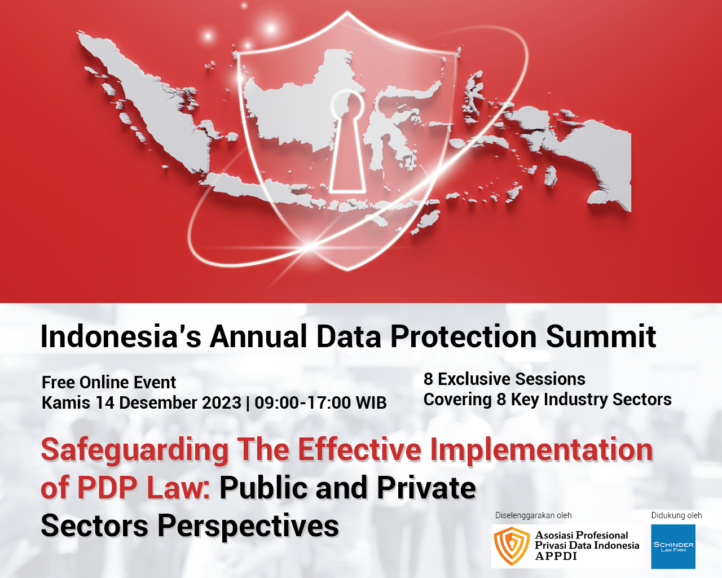
Unlocking Indonesia: The Golden Visa for Global Investors
According to the OECD’s definition, Residency by Investment and Citizenship by Investment schemes, often referred to as ‘Golden Visa’ and ‘Golden Passport’, are policies implemented by a country to grant residency or citizenship to foreign nationals through investment or by paying certain fees. In 2022, it is estimated that more than 60 countries have implemented such investment-based residency and citizenship…

Issuance of PMK 96/2023: Safeguarding SMEs and Reducing Consumer Imports
On October 13, 2023, the Ministry of Finance of Indonesia issued Regulation No.96 of 2023 concerning Customs, Excise, and Tax Provisions on the Import and Export of Consignment Goods (“PMK 96/2023”), which effective from October 17, 2023. The issuance of PMK 96/2023 is a vital part of the Ministry of Finance’s efforts to enhance its services by providing legal certainty and clear regulations regarding customs, excise, and tax provisions for…

Branch NPWP Abolished Starting January 2024
Starting on 1 January 2024, the Branch Taxpayer Identification Number (NPWP Cabang) will be abolished, and according to Minister of Finance Regulation No. 112/PMK.03/2022 regarding NPWP for Individual Taxpayers, Corporate Taxpayers, and Government Institution Taxpayers (PMK 112/2022), the Branch NPWP will be replaced by the Identification Number of Business Activity (Nomor Identitas Tempat Kegiatan Usaha or NITKU).

Strategic VAT Subsidies: Accelerating Domestic Component Level in Indonesia’s EVs
The Domestic Component Level (Tingkat Komponen Dalam Negeri or TKDN) certification has become an essential element in the progress of industries in Indonesia. Business actors must take a crucial step of securing government assistance for TKDN certification. TKDN, represents the proportion of domestically produced components’ value. This concept encompasses a wide array of products, spanning both goods and services, along…

Company’s Mandatory in Reporting of Job Vacancies
On September 25, 2023, the President of the Republic of Indonesia, Joko Widodo, signed Presidential Regulation No.57 of 2023 regarding Mandatory Reporting of Job Vacancies, which repealed Presidential Decree No.4 of 1980 concerning Mandatory Reporting of Job Vacancies. This regulation was issued with the aim of improving the service of workforce placement within a unified labor market by ensuring the availability of accurate and suitable job vacancy information.

Indonesia’s Annual Data Protection Summit
Welcome to Indonesia’s Annual Data Protection Summit – a must-attend, free online event prioritizes the enhancement of data security in Indonesia. Taking place on Thursday, 14 December, with the theme ‘Safeguarding The Effective Implementation of PDP Law: Public and Private Sectors Perspectives’, featuring valuable insights from key exclusive industry sectors. Connect with industry leaders, experts, and professionals in the field of data protection. Whether you’re looking to expand your knowledge, actively involved in data-related…

The Strategic Role of TKDN Certification in Supporting the Domestic Industry
The Domestic Component Level (Tingkat Komponen Dalam Negeri or TKDN) certification has become a crucial factor in the development of industries in Indonesia. Government support for obtaining TKDN certification is a vital step that business actors need to take. Before delving further, it is essential to understand the concept of TKDN and why it plays a strategic role in the development of the domestic industry.

ISO 27001:2013 – Enhancing Information Security and Customer Trust
In the advancing digital era, safeguarding data and information has become a crucial challenge for organizations across various sectors. Cyber threats are evolving, and information breaches can have serious ramifications for both businesses and individuals. This is where ISO 27001:2013, the international standard for Information Security Management Systems (ISMS), plays a vital role in assisting organizations in effectively managing and protecting information.

Retail Trade and Department Stores Partnerships: Supporting MSEs in Indonesia
Indonesia is one of the countries with a rapid growing retail sector. An essential component of this industry involves the retailing of various non-food, non-beverage, or tobacco-related items in supermarkets or department stores. In an effort to develop this sector while supporting micro and small enterprises (MSEs), the government has issued regulations and guidelines that govern partnerships in this retail trade.

Foreign Entities Providing Loans and Holding Mortgage Rights in Indonesia
In the realm of real estate development and financing, foreign entities have shown a growing interest in contributing to infrastructure development and investment in various countries, including Indonesia. One mechanism that has gained attention is the concept of foreign entities providing loans and holding mortgage rights, also known as “Hak Tanggungan” in Indonesian law. This practice has the potential to support the expansion of infrastructure…
Practice Area
- Dispute Resolution
- Foreign Direct Investment
- Business Formation, Mergers and Acquisitions
- Land and Property
- Construction and Real Estate
- Employment and Labor
- Environmental Law
- Bankruptcy, Insolvency and Restructuring
- Aviation and Shipping
- White Collar Crime
- Intellectual Property and IP Dispute
- Privacy, Data Protection and Cyber-Security